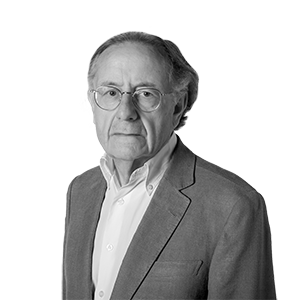

1. Simplicity. No two humans are alike. This reality is expressed in all types of relationships, including creativity. We humans create from the complexity of our condition: a body that lives in relationship, an intelligence, perceptions, sensations, feelings, a sensitivity that makes each of us a unique relational animal. Affection defines our relationships with one another. Uniqueness is transmitted in all areas of life and in the creation of symbols. For many years now, in The intimate sense (1982) explored the forms of this relationship: love, artistic creation, intuition, the construction of singularities, so to speak. Does AI overflow this world? Will it leave space for the human condition or will it envelop us from its presumed capacity to do creative work for us? Will there still be artists or will they be AI feeders? Artificial intelligence sounds to me like a contradiction in terms. Or, worse, a certain desire to expropriate humans' singularity.
As I was saying The Verbena of the Dove, "Today, science is advancing at an incredible rate."There's no doubt that scientific progress has led to a twenty-year increase in life expectancy in the most developed populations, although, let's not get carried away, our DNA doesn't allow us to go much further. But I don't want to let the word go. barbarityThe line between good and evil is thin, and the will to power is constitutive of the species. Precisely for this reason, I ask myself the question: how can we master AI so that it reinforces, rather than hinders, the development of the radical uniqueness of our condition, especially in terms of rights, control, expression, creation, and personal fulfillment? How can we save our uniqueness, the peculiar economy of desire that shapes us, the diversity of perspectives and perceptions, the experience of good and evil?
Can we imagine, thanks to AI, a world that is more open, intense, productive, and democratic in its access to knowledge and information, or will it generate elites even more distant from citizens and retire our creative uniqueness? A novel, an essay, a painting: art is the creation of singular individuals; the work is unrepeatable. And so we hear of exceptional experiences. Personal relationships are a world that ranges from abuse to complicity, from love to hate, in the most unexpected and sometimes catastrophic ways, but it is the human condition with its vertigo, emotion, and intensity.
2. Confusion. Large American companies have a stock market capitalization equivalent to ten times Spain's GDP. They say that the generation of wealth essential for well-being depends on AI. It's frightening that doctors and patients increasingly fail to see eye to eye. What becomes of the artist if everything passes through the sieve of AI? Can AI guarantee the uniqueness of human creation, or does it overwhelm it and appropriate it? Does the machine's ability to accumulate and manipulate data without limits combine with the creative impulse of genius?
Task automation (less employment), data analysis (less diversity). AI as a public window (all procedures less personalized). What does AI do, what does human beings do? And who is in control of AI? The machine at whose service? Could there come a time when it overwhelms the human condition? Should we adapt to a brave new world where the machine does everything for us? Who would be in charge? Are there limits? Who sets the pace? Can the machine behave in a nihilistic way? Is AI an instrument of political confrontation, a driving force of hegemony?
For now, we have the experience of networks. Who will set the pace for AI? Does it have an owner, like X? The nihilistic experience of the techno-caste we are experiencing is disturbing. Right now, it has led a tyrant to govern the United States. A tyrant, as Plato said, "is the most wretched of men, because no one is more powerless than he who does not know how to govern himself."
AI is an instrument. The problem is its use. It is scary, for example, that it will reach schools. From the moment it is installed, will anyone learn to write? Or will the AI do the work?
Who has power over AI? Is there still room for the artist who creates a singular and unrepeatable work? Or should AI paint the world from the squalor of data manipulation without magic? The great and deliberate confusion is calling it intelligence.
